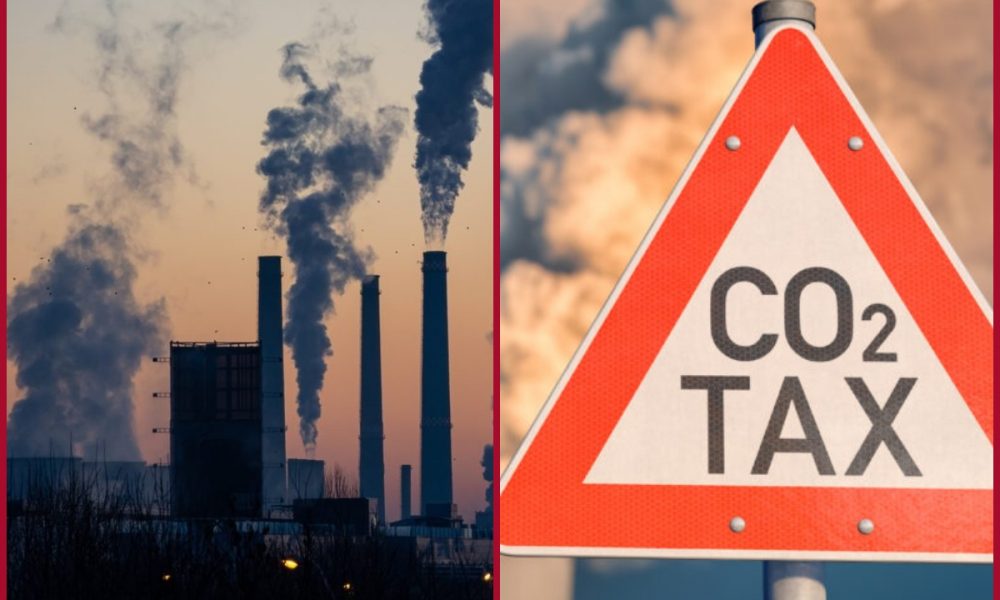
New Delhi: The overall temperature of the earth is increasing very fast which could pose a serious threat to all the living things on the planet. Scientists say if our planet becomes warmer by a mere 2 degrees Celsius, it may bring unprecedented heat waves, intense storms, floods, and widespread flood shortages.
Understanding the serious threat of climate change, at least 23 countries have implemented carbon taxes at the national level, according to the United Nations. Let’s understand, What is a carbon tax and its utility on the planet?
What is Carbon Tax?
When the government imposes a tax on carbon emissions, it is simply called a carbon tax. It helps the government to legally force the carbon emitters to reduce their emission for the safety of the earth. The money collected by the government can also be used to invest in green technology, renewable energy source, research on emission reduction, etc.

In the early 1990s, Finland become the first country to impose a carbon tax in the year 1990, followed by Norway (1991), Sweden (1991), and Denmark (1992). In the following years, developing economies such as Chile and South Africa also introduced the tax system.
Carbon tax system in India
So far, there is no provision for a uniform system of carbon taxation in India. However, it does not mean the country is doing nothing to bring down carbon emissions in the country.
Some state governments have their own taxes such as the Green Cess in Goa and Eco Tax on vehicles entering Uttarakhand’s Mussoorie. Besides, the government also provides a Compensation Cess on coal production at Rs. 400 per tonne to reduce dependence on coal.
Why does carbon taxes important to put into effect?
Let’s check the utility of carbon taxes in the below-mentioned points:
1. Carbon taxes are considered to be helpful in discouraging the consumption of highly carbon-emissive materials.

2. Carbon taxes force the polluter to opt for ways that are environmentally friendly and search for greener inputs.
3. Carbon taxes are good for most of the public as it is imposed only on those who are posing threat to the planet by emitting pollution into the environment.




